
“A Piece of My Mind”
 February 2025 Newsletter
February 2025 Newsletter
Advancing Christian Faith and Values,
Defending Religious Liberty for All,
Supporting Civility and the Common Good
through Preaching, Teaching, Writing, Activism and Reasoned Conversations
www.donaldshoemakerministries.com
The First Commandment
“You shall have no other gods before me”
Second in a series on the Ten Commandments by Donald P. Shoemaker
“…this commandment is the very first, highest and best, from which all the others proceed, in which they exist, and by which they are directed and measured…”
—Martin Luther, “Treatise on Good Works” Works of Martin Luther vol. 1, p. 194
Words of Life, words of Hope
Give us strength, help us cope
In this world, where e’er we roam
Ancient words will guide us home
Ancient words ever true
Changing me and changing you
We have come with open hearts
Oh, let the ancient words impart
— “Ancient Words” (second verse) by Lynn Deshazo (Hosanna! 2001)
#1 – The texts of the First Commandment
“You shall have no other gods before me.” – Exodus 20:3, Deuteronomy 5:7
Exodus 20 contains the first presentation of the Ten Commandments. Deuteronomy 5 contains the second. After all, the word “Deuteronomy” refers to a restatement of God’s Law (“deuteros” + “nomos”).
#2 – Why should the Ten Commandments be given a second time?
The listeners to the law in Deuteronomy 5 represented the second generation of those who came out of slavery in Egypt. At the most, they were children when Moses presented these commandments the first time.
“The Lord our God made a covenant with us in Horeb. Not with our fathers did the Lord make this covenant, but with us, who are all of us here alive today” (Deuteronomy 5:2-3).
The covenant (its promises and commandments) was not for one generation alone but for generations yet to come. Here it is for the children of the first.
Truth worth its salt is worth repeating. Each year in January we might hear someone deliver Martin Luther King’s “I Have a Dream” speech. And so it is with other national holidays. What’s important bears repeating, lest we forget.
The Church is always just one generation away from losing its orthodox beliefs and/or behavior. Again, truth bears repeating, lest we forget.
Moses repeated God’s commands so the next generation would “fear the Lord your God, you and your son and your son’s son, by keeping all his statutes and his commandments” (6:2).
“When your son asks you in time to come, ‘What is the meaning of the testimonies and the statutes and the rules that the Lord our God has commanded you?’ then you shall say to your son, ‘We were Pharaoh’s slaves in Egypt. And the Lord brought us out of Egypt with a mighty hand’” (6:20-21).
The trend in many churches is to segregate people by their ages, to help promote “relevance” of course. The loss is huge, as the intergenerational communication of God’s word and work and ways is seriously compromised.
#3 – The Preamble of the First Commandment
Before giving a command, God tells the people who he is and what he has done by grace in their behalf.
“I am the LORD your God, who brought you out of the land of Egypt, out of the house of slaves” (Exodus 20:2; Deuteronomy 5:6). The commandment-giver is YHWH (“Yahweh” = “LORD” = “Jehovah”), the God who is there for us and always will be; the God who keeps his promises.
He is the God who delivers his people not only from another country but from the existential state of slavery and oppression. For the Israelites then, it was at the hands of the Egyptian pharaoh and taskmasters. Most people may think of the glories of Egypt and the pyramids. Israelites need to remember the inhumane slavery of her past.
For Christians, the slavery was to sin, and we were oppressed by Satan and other taskmasters that sin imposed on us. “[God] has delivered us from the domain of darkness and transferred us to the kingdom of his beloved son, in whom we have redemption, the forgiveness of sins” (Colossians 1:13-14).
#4 – The Meaning of the First Commandment
“You shall have no other gods before me” might imply at first notice a form of “henotheism.” Henotheism singles out one particular god among many for worship and obedience. This commandment would then be saying, “Don’t make any of the other gods out there equal to the God of Israel.”
But this is not at all the conviction that undergirds the First Commandment. Israel confesses Jehovah God as the only God (monotheism), not the top god among many. This is clear throughout the OT and NT scriptures.
Thus says the Lord, the King of Israel
and his Redeemer, the Lord of hosts:
“I am the first and I am the last;
besides me there is no god.
Who is like me? Let him proclaim it.
Let him declare and set it before me,
since I appointed an ancient people.
Let them declare what is to come, and what will happen.
– Isaiah 44:6-7
I am the Lord, and there is no other,
besides me there is no God;
I equip you, though you do not know me,
that people may know, from the rising of the sun
and from the west, that there is none besides me;
I am the Lord, and there is no other.
– Isaiah 45:5-6
For although there may be so-called gods in heaven or on earth—as indeed there are many “gods” and many “lords”— yet for us there is one God, the Father, from whom are all things and for whom we exist, and one Lord, Jesus Christ, through whom are all things and through whom we exist.
– 1 Corinthians 8:5-6
The words “no other god” simply acknowledge that the other nations worship idols as their gods. Israel must worship, obey and serve the only God.
The God of Israel is a personal living God who “will not be satisfied with anything less than a personal relationship with men and women whom he created in his image” (The Pentateuch as Narrative, p. 285).
#5 – The Positive Side of this Negative Command
The Ten Commandments are like batteries with two polarities—positive and negative. You need both polarities to get any value out of the battery. Eight of the Ten Commandments are negatives, so we must also seek and live out positive expressions of them. Only two are positive commands. They require that we avoid doing whatever negative things are opposite their demands.
The First Commandment is a negative—it tells you what you must not do. We must look for the positive side. What does the commandment, therefore, require us to do?
We must confess God as first in our lives, the only legitimate claimant to our loyalty—our love, our worship, our service, our devotion. (Please avoid the common testimony that “I made him Lord of my life.” He has always been Lord of all—we just get around to confessing him as such and living accordingly.)
#6 – Today’s false god: The Cult of the Self
Dennis Prager sees the wrongdoing of the First Commandments this way:
When anything else is worshipped, it is a false god. In other words, when anything is made an end in itself, rather than as a means to God and goodness (as defined, most especially, by the Ten Commandments) it is a false God. (The Rational Bible: Exodus, p. 228. Italics by the author)
Let’s focus on one primary “other god” in our time: self. We make “self” the center of reality in matters of morality. We make the ability to love ourselves an essential for fulfillment. Some even twist Jesus’ second love commandment (“Love your neighbor as yourself.” – Matthew 22:39) to make development of “self-love” a priority and prerequisite to obeying the love command. In contrast, the Bible labels self-love as a sign of the perilous “last days” (2 Timothy 3:2).
The Apostle Paul warns of those whose “god is their stomach and their glory is in their shame” (Philippians 3:19). Some writers speak of the unholy false trinities of “sex, silver and stomach” or “pleasure, possessions and position.”
#7 – The “false gods” of Romans 1
In this sad but magnificent chapter, the Apostle Paul speaks of the witness of creation to the reality of God. His “eternal power and divine nature have been clearly seen, being understood from what has been made” (verse 21).
Humanity, however, suppresses this truth and exchanges “the glory of the immortal God for images” that look like man or birds or animals…”
At this point, God abandons those who suppress the truth and form false gods. As a consequence of this idolatry, a powerful litany of sins is listed in the last half of chapter one (verses 22-32) starting with sexual impurity that degrades the body and ending with ruthlessness. All are in contrast to the moral ways that follow devotion to the One True God.
#8 – Other “false gods” clamoring for attention.
What else clamors for a deity position at the head of the line? Love secularly understood, money and what it can buy, Americanism and blind uncritical patriotism, environmentalism and “Mother Earth” pantheism. Even life itself (a pro-life leader would end his letters with: “God is Life; Life is God”). Can you think of others?
Scientism is a competitor for the top spot. Remember the mantra by some in government: “We’ve got to follow ‘the science’.” As if science yields all the right questions and answers and deserves our unquestioned acceptance and adoration. But right and wrong, religion and God, love and hate, wisdom and foolishness—such quests are not subject to scientific inquiry. One who says, “I don’t accept what science cannot establish” is serving science as a god and his truncated life is to be most pitied.
#9 – A worthy quest and commendation
“…you turned to God from idols
to serve the living and true God…”
– 1 Thessalonians 1:9
Religious Liberty Vigilance –
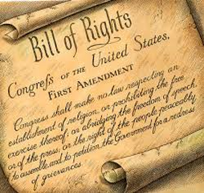 “Congress shall make no law respecting an establishment of religion, or prohibiting the free exercise thereof, or abridging the freedom of speech, or of the press; or the right of the people peaceably to assemble, and to petition the Government for a redress of grievances.” – 1st Amendment
“Congress shall make no law respecting an establishment of religion, or prohibiting the free exercise thereof, or abridging the freedom of speech, or of the press; or the right of the people peaceably to assemble, and to petition the Government for a redress of grievances.” – 1st Amendment
2025 Religious Freedom Day
January 16 was another Religious Freedom Day in America. Who noticed?
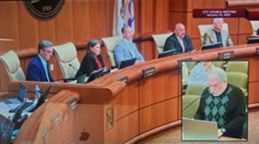 As a new resident of Temecula, California I went to the City Council meeting on January 14 to do what I did several times when I lived in Long Beach—I talked about religious freedom.
As a new resident of Temecula, California I went to the City Council meeting on January 14 to do what I did several times when I lived in Long Beach—I talked about religious freedom.
Here is the text of my 3-minute address:
Mr. Mayor, members of the City Council, city officials and fellow citizens, my name is Donald Shoemaker and I reside in the city’s third district.
My wife, Mary, and I moved to Temecula last year after living in our Long Beach home for 54 years. During those years I served as pastor of two congregations in Long Beach and Seal Beach and taught theology at Biola University. I also served for 23 years as chaplain of the Seal Beach Police Department.
We feel very welcomed here in our new community. In fact, yesterday I was “welcomed” by getting a Jury Duty Summons in the mail!
Anyway, as part of our settling into “the good life” of this city, I want to address the council this evening to emphasize that January 16 is Religious Freedom Day in America. Each year since 1993 the President of the United States has issued a Proclamation on the importance of religious liberty and designated January 16 as Religious Freedom Day. *
Last year’s proclamation said this:
The constitutional right to practice our faiths peacefully and openly is a core tenet of our democracy and helps us fulfill one of our highest aspirations as a Nation: to be a citadel of liberty and a beacon of freedom.
Everyone must be free to practice their faith without fear, whether they are gathering for worship, attending a religious school, participating in the activities of faith-based organizations, or simply walking down the street wearing the symbols of their faith.
Sadly, it is not safe in some places in today’s America to wear symbols or words expressing one’s faith. Anti-Semitism has broken out on many campuses. Even in a country as free and tolerant as ours, the jungle of religious oppression is never far away. Therefore vigilance to uphold religious freedom remains our constant duty.
As we celebrate Martin Luther King’s birthday tomorrow let us remember that his principled stands based on his religious beliefs led to his untimely death.
American history has had its religious intolerance. But overall our country has embraced a unique tradition of religious liberty that has prevented religious domination, conflict, and persecution and nurtured an environment where religion has flourished and where people have been left free to choose which faith they shall live by.
I urge the citizens of Temecula, the leaders of this city, and our local educators to make religious freedom a keystone of our civic life and experiences, and of our thinking and teaching. Thank you.
* The Biden administration issued this year’s proclamation belatedly on January 15.
Andrea M. Picciotti-Bayer, legal analyst for Eternal Word TV Network (Catholic television), said, “For many Christians, it will be a moment of bitter irony. Every president since 1993 has made this annual declaration to commemorate Religious Freedom Day. Sadly, none has harmed freedom of religion more than America’s second Catholic president.”
 Back the Badge
Back the Badge
LODD (Line of Duty Deaths) in 2024
“Blessed are those who maintain justice.” – Psalm 106:3
“Under 100” is a goal in law enforcement. All law enforcement should diligently train and carefully follow cautionary procedures so that the total number of LODD in a year can be under 100.
It’s getting closer but there is still a ways to go. In 2024 there were 145 LODD —a five percent decrease from 2023. The highest cause is gunfire (49) followed by automobile crashes (20). Third is 9/11-related illnesses—still a stubborn 14 after 24 years of statistics.
Very sadly, the final death of 2024 was on Christmas Day—Ohio Correction Officer Andrew Lansing, working volunteer overtime, died from an assault. Prisoner Rashawn Cannon stepped out of a line of prisoners walking to breakfast and approached Lansing, who was working alone in the prison yard.
Blunt force injuries to his head was the cause of Officer Lansing’s death. Lansing (62) was a 24-year veteran of the Ohio Department of Rehabilitation and Correction. A letter postmarked January 4 was sent to the officer’s home celebrating his death, encouraging violence, and ending with “Allahu Akbar.”
Some precautions to help prevent LODD and achieve the “Under 100” goal:
• Remember: Complacency Kills
• Know Your Surroundings
• Apply the WIN (What’s Important Now?) Principle.
• Avoid Working Alone. When you must, follow special safety procedures.
• Watch Your Speed
• Always Wear Your Seatbelt
“May God always have your “6:00” (protection from behind).”
“Back the Badge” is an occasional essay written by Donald Shoemaker, a police chaplain (now retired) with Master Certification and 23 years of experience, and an ordained minister with over 55 years of experience.
Political Commentaries
Political Commentary #1 – The Bishop’s Comments at the Inaugural Prayer Service, Washington Cathedral, January 21
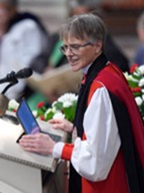 “Let me make one final plea, Mr. President. Millions have put their trust in you and, as you told the nation yesterday, you have felt the providential hand of a loving God. In the name of our God, I ask you to have mercy upon the people in our country who are scared now. There are gay, lesbian and transgender children in Democratic, Republican, and Independent families, some who fear for their lives. The people who pick our crops and clean our office buildings; who labor in poultry farms and meat packing plants; who wash the dishes after we eat in restaurants and work the night shifts in hospitals. They…may not be citizens or have the proper documentation. But the vast majority of immigrants are not criminals. They pay taxes and are good neighbors. They are faithful members of our churches and mosques, synagogues, gurudwaras and temples.”
“Let me make one final plea, Mr. President. Millions have put their trust in you and, as you told the nation yesterday, you have felt the providential hand of a loving God. In the name of our God, I ask you to have mercy upon the people in our country who are scared now. There are gay, lesbian and transgender children in Democratic, Republican, and Independent families, some who fear for their lives. The people who pick our crops and clean our office buildings; who labor in poultry farms and meat packing plants; who wash the dishes after we eat in restaurants and work the night shifts in hospitals. They…may not be citizens or have the proper documentation. But the vast majority of immigrants are not criminals. They pay taxes and are good neighbors. They are faithful members of our churches and mosques, synagogues, gurudwaras and temples.”
– Right Rev. Mariann Budde, Episcopal Bishop of Washington
Was the “Right Reverend” the “Wrong Reverend”? I think so. She shamed the sacred pulpit and brought discredit on the honorable service of clergy. *
As a pastor, I gave sermons for 34 years as I served two congregations. More and more, I was resolute that politics must be separated from biblical teaching and kept out of the church.
At the same time, l recognize that biblical teaching addresses moral issues that find their way into political arenas. So, it is hard sometimes to keep politics and biblical teaching absolutely separate. “Love your neighbor as yourself” is biblical teaching which needs to be applied “where the rubber meets the road” at many levels—home, businesses, civic life, governmental policy, etc. And this may lead to honest differences of opinion—all the more reason not to bring one side of a serious debate into the one-directional pulpit.
* For a well-expressed contrary opinion: David W. Marshall, “Bishop Mariann Budde Challenges Donald Trump and Religious Hypocrisy in Bold Sermon,” ThyBlackMan, January 28, 2025.
There’s another factor: propriety. Truth (assuming it is truth) must be combined with discretion. Notice what the Bible says:
“I, wisdom, dwell with prudence, and I find knowledge and discretion.”
– Proverbs 8:12 (see also Proverbs 2:11; 3:21; 5:2; 11:12). “Discretion” (Hebrew: m’zimma) is shrewdness, resourcefulness that must be combined with “knowledge” (da’at) for disciplined wisdom to exist.
“Then Daniel replied with prudence and discretion to Arioch, the captain of the king’s guard” – Daniel 2:14. This scripture is very relevant, in that Daniel was facing a life-or-death situation and needed a chance to present his case before the King. Discretion (Hebrew: t’m) seems to speak of doing something “in good taste.” It seeks to present the truth in the most effective and appropriate way. (Resource: New International Dictionary of Old Testament Theology and Exegesis)
“Discretion” must guide us in how to present the message we want to convey. The pulpit may not be the best forum. Perhaps dialogue in a discussion group is a better format.
I emphasize that using a pulpit before a large audience in what was supposed to be a prayer service is not the wise format to direct a lecture to one person sitting there—in this case the President of the United States. This is no more appropriate than using a wedding to lecture the bride or groom on their political activities in front of guests. These all rise to the heights of insensitivity and lack the wisdom and discernment the Bible calls us to have. Jesus said, “Be wise as serpents and harmless as doves.” In contrast, we shouldn’t “be as harmless as serpents and as wise as a dumb animal.”
Issues like immigration and transgenderism are multifaceted and complicated topics. To aim one’s moralism on these topics at the President in attendance is incredible reductionism.
Finally, the bishop seems to lump all kinds of immigrants together. She does allow that some “may not have the proper documentation,” which trivializes the problems arising from illegal entry into the country. All too often immigrant issues are presented simplistically or one-sidedly. I’m more generous on immigration issues than the president is, but I personally would not want to be cared for at a hospital during the night shift by one who is not in this country legally.
Four good words: “High walls, wide gates.”
Bottom Line: The bishop was anti-ecumenical at what was supposed to be an ecumenical occasion. This may doom such services in the future, and lead to more separation of religion from state and people from people.
Political Commentary #2 – The Speaker of the House of Representatives and “Jefferson’s Prayer” 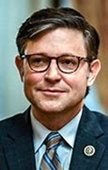
After a grueling process of getting elected Speaker of the House, Mike Johnson gave an acceptance speech, which was excellent. He is an excellent man.
But then Speaker Johnson quoted “Jefferson’s Prayer”:
“Almighty God, Who has given us this good land for our heritage; We humbly beseech Thee that we may always prove ourselves a people mindful of Thy favor and glad to do Thy will. Bless our land with honorable ministry, sound learning, and pure manners. Save us from violence, discord, and confusion, from pride and arrogance, and from every evil way. Defend our liberties, and fashion into one united people, the multitude brought hither out of many kindreds and tongues. Endow with Thy spirit of wisdom those whom in Thy name we entrust the authority of government, that there may be justice and peace at home, and that through obedience to Thy law, we may show forth Thy praise among the nations of the earth. In time of prosperity fill our hearts with thankfulness, and in the day of trouble, suffer not our trust in Thee to fail; all of which we ask through Jesus Christ our Lord. Amen.”
Speaker Johnson said Thomas Jefferson recited this prayer every day of
his presidency and afterward every day until his death. Mr. Johnson added:
“I wanted to share it with you here at the end of my remarks. Not as a prayer per se right now, but really as a reminder of what our third President and the primary author of the Declaration of Independence thought was so important that it should be a daily recitation.”
When he finished his fine speech I turned to my wife and said I wasn’t too sure about this prayer. It didn’t sound very “Jeffersonian.” And I doubt very much that Jefferson ended his prayers with “we ask through Jesus Christ our Lord.”
Further checking affirms my concern. The Jefferson Foundation labels this prayer “spurious” and on a website page about this issue says, “We have no evidence that this prayer was written or delivered by Thomas Jefferson.”
It’s actually found in the Episcopal Church’s Book of Common Prayer (1928) as a prayer “for our country.” In a book on Anglican prayers, Episcopal priest Christopher Webber attributed the prayer to Rev. George Lyman Locke (1835-1919), a minister in Rhode Island. Too late for Jefferson, who died in 1826.
I found this prayer under “Prayers for National Life” in the Book for Common Worship for The Presbyterian Church (USA). I also found it in almost identical form as a prayer for the nation in the Lutheran Service Book (The Lutheran Church—Missouri Synod), page 313.
The speech was a great speech and the prayer is a great prayer. But it was not Jefferson’s prayer.
Whenever I teach on Christian social action, I have this as an emphatic point of guidance: “GET THE FACTS! GET THE FACTS! GET THE FACTS!” Never present a misstatement as a gift to your critics that they can then take and use against you. Be skeptical about what you read in a time of controversy. Check and double check. How you represent the views of your opponents should be so accurate that they will say that is, indeed, their position.
www.donaldshoemakerministries.com
Don has been a member of the clergy in the Long Beach, California area since 1970. He has served as Pastor Emeritus of Grace Community Church of Seal Beach (where he was senior pastor 1984-2012) and as Senior Chaplain of the Seal Beach Police Department (2001-2024). He previously was an assistant professor of Biblical Studies at Biola University (1976-84) and chaired the Social Concerns Committee in the Fellowship of Grace Brethren Churches from 1985 to 2019.
His graduate work includes a Master of Divinity magna cum laude from Grace Theological Seminary, a Master of Theology from Fuller Theological Seminary with a concentration in Christian ethics, and a Doctor of Ministry from American Baptist Seminary of the West (now Berkeley School of Theology) with a concentration on the Charismatic Movement. His law school studies included a course on the First Amendment.
Don and his wife Mary have been married for 58 years. They have two children and six grandchildren, plus now a grandson-in-law. They recently moved to Temecula, California after living 54 years in Long Beach.
© 2025 Donald Shoemaker


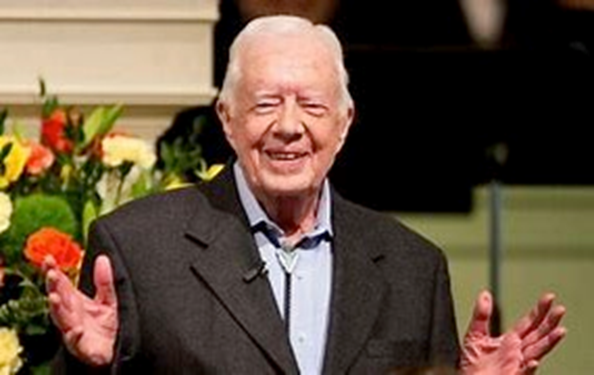
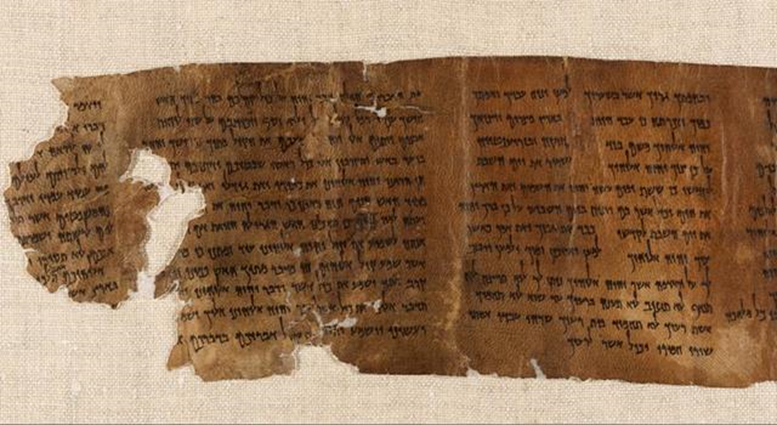
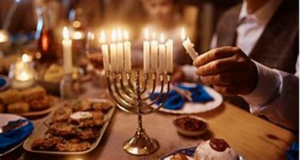
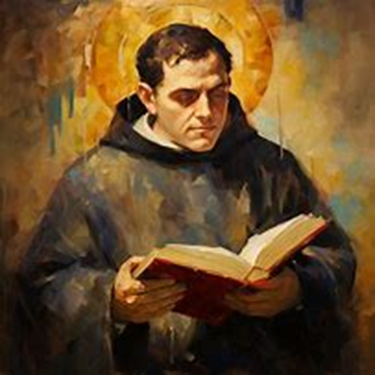 A Thanksgiving Prayer to God…
A Thanksgiving Prayer to God…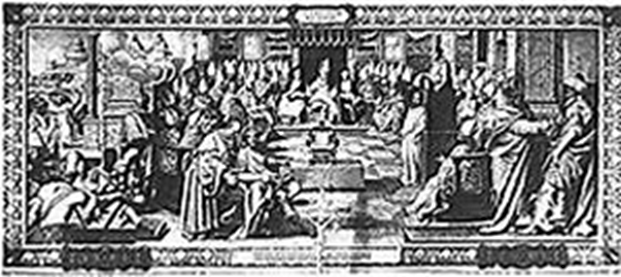 The controversy became so great that Emperor Constantine, wanting to keep peace in the empire, called for a conference in Nicaea, a city in modern-day Turkey, to deal with the problem (325 AD). Note that the Roman Empire was now led for the first time by an emperor who professed Christianity. It’s no longer Nero’s empire! And just a few years earlier Diocletian had brought the last Roman persecution against Christians. It’s hard for us to imagine political leaders in America being so concerned about doctrine as to call for a council to settle a matter. I can’t picture Gavin Newsom caring in the least!
The controversy became so great that Emperor Constantine, wanting to keep peace in the empire, called for a conference in Nicaea, a city in modern-day Turkey, to deal with the problem (325 AD). Note that the Roman Empire was now led for the first time by an emperor who professed Christianity. It’s no longer Nero’s empire! And just a few years earlier Diocletian had brought the last Roman persecution against Christians. It’s hard for us to imagine political leaders in America being so concerned about doctrine as to call for a council to settle a matter. I can’t picture Gavin Newsom caring in the least! 
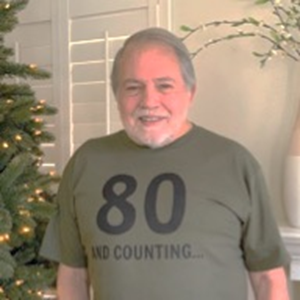 “80” on the 8th and Counting!
“80” on the 8th and Counting!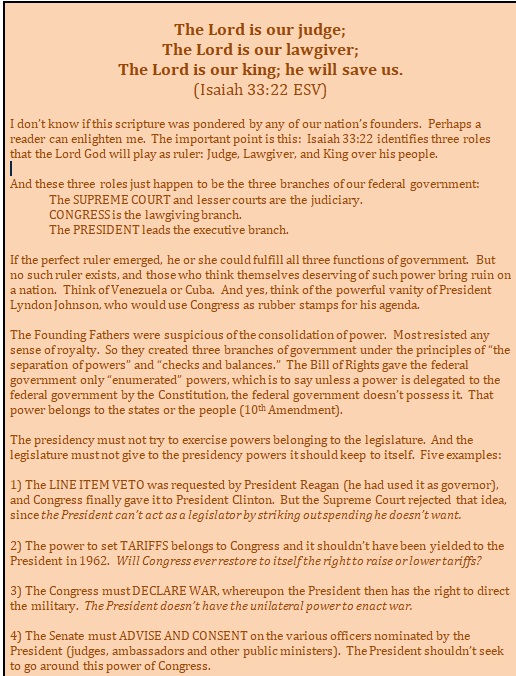

 California’s Great Seal depicts a grizzly bear, the state’s official animal. The bear is feasting on grape vines, representing California’s wine production. But 100 years ago – November, 1924 – The last sighting of a California grizzly bear was reported in Sequoia National Park.
California’s Great Seal depicts a grizzly bear, the state’s official animal. The bear is feasting on grape vines, representing California’s wine production. But 100 years ago – November, 1924 – The last sighting of a California grizzly bear was reported in Sequoia National Park.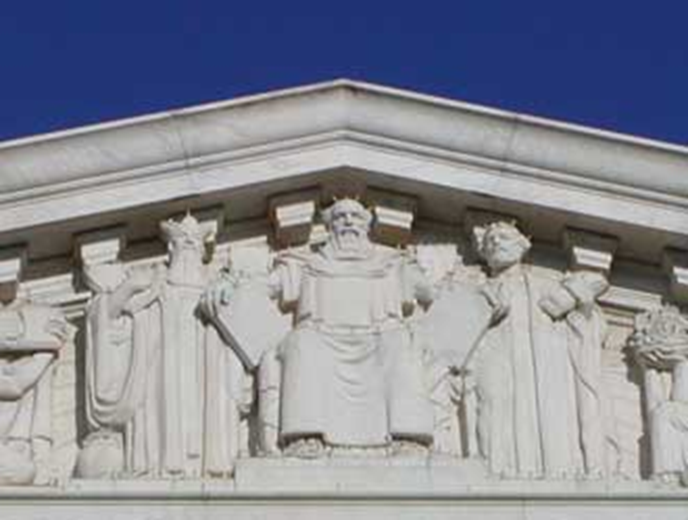
 “Transgender Day of Remembrance”
“Transgender Day of Remembrance” November 2024 Newsletter
November 2024 Newsletter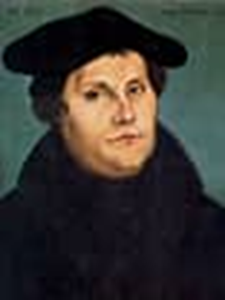

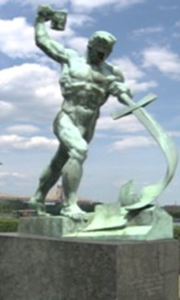

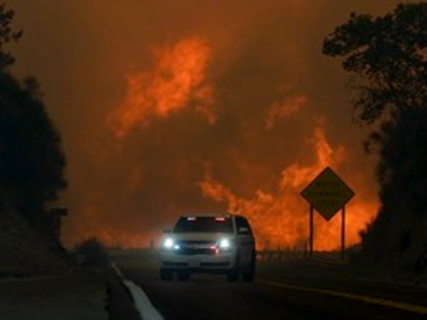 I thought of this scripture as the apocalyptic scenes of incredible fires appeared recently west and north of where we live in S. California.
I thought of this scripture as the apocalyptic scenes of incredible fires appeared recently west and north of where we live in S. California.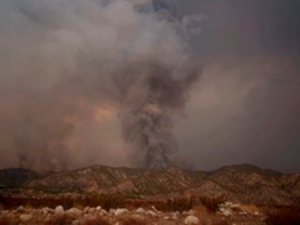


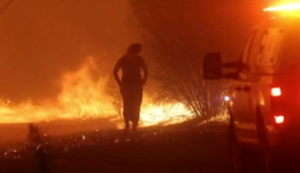

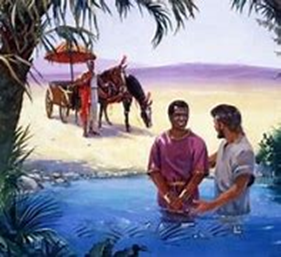 Many evangelical churches have separated baptism from the saving confession in practice through the introduction of another “sacrament” – the “walking forward invitation” to receive Christ, followed sooner or later by baptism (hopefully) when one gets around to it.
Many evangelical churches have separated baptism from the saving confession in practice through the introduction of another “sacrament” – the “walking forward invitation” to receive Christ, followed sooner or later by baptism (hopefully) when one gets around to it.
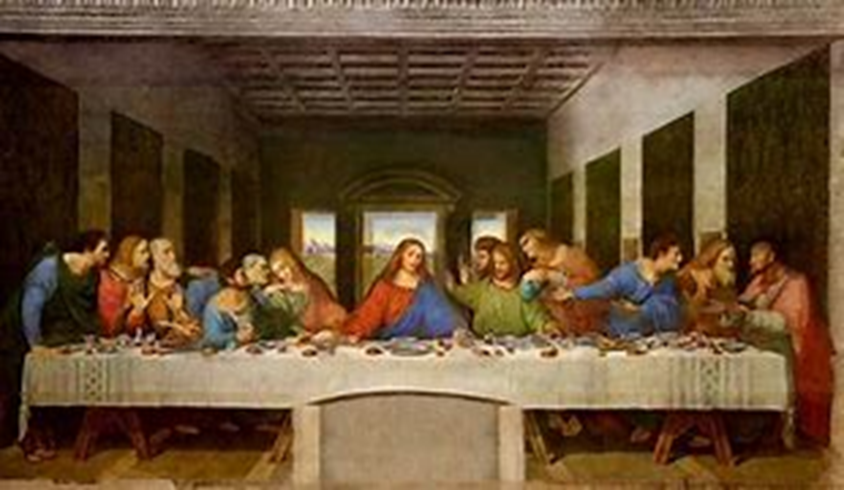 Leonardo da Vinci’s “The Last Supper” (c. 1495-98)
Leonardo da Vinci’s “The Last Supper” (c. 1495-98)
 “The God of wine, which is also a French jewel and father of Sequana, the Goddess linked to the River Seine. The idea was to create a big pagan party in link with the God of Mount Olympus.”
“The God of wine, which is also a French jewel and father of Sequana, the Goddess linked to the River Seine. The idea was to create a big pagan party in link with the God of Mount Olympus.” Imane Khelif of Algeria, who a year ago failed a gender eligibility test by the International Boxing Association, went on to win Gold in women’s boxing after (earlier) defeating Angela Carini of Italy who, despite her skill and physical conditioning, lasted only 46 seconds in the ring. She would later say she had never been hit so hard (in the face) as she was by a blow from Khelif.
Imane Khelif of Algeria, who a year ago failed a gender eligibility test by the International Boxing Association, went on to win Gold in women’s boxing after (earlier) defeating Angela Carini of Italy who, despite her skill and physical conditioning, lasted only 46 seconds in the ring. She would later say she had never been hit so hard (in the face) as she was by a blow from Khelif.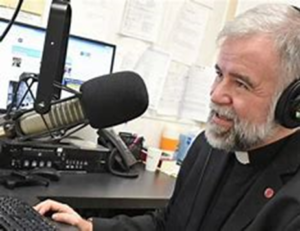 Theologian Robert McTeigue, SJ, considers the state of the contemporary church and answers…
Theologian Robert McTeigue, SJ, considers the state of the contemporary church and answers…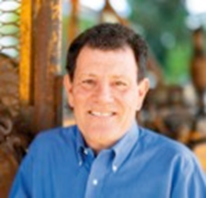 Nickolas Kristof—“Progressive” No More
Nickolas Kristof—“Progressive” No More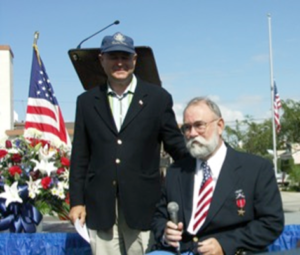 George Gentry—
George Gentry— A Bronze Star for Heroic Military Service
A Bronze Star for Heroic Military Service Students march and rally on Columbia University campus in support of a protest encampment supporting Palestinians, despite a 2pm deadline issued by university officials to disband or face suspension, during the ongoing conflict between Israel and the Palestinian Islamist group Hamas, in New York City, U.S.,
Students march and rally on Columbia University campus in support of a protest encampment supporting Palestinians, despite a 2pm deadline issued by university officials to disband or face suspension, during the ongoing conflict between Israel and the Palestinian Islamist group Hamas, in New York City, U.S.,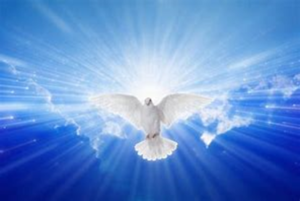 I believe in the Holy Spirit
I believe in the Holy Spirit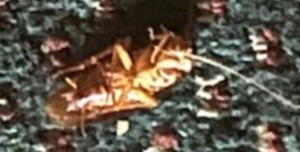 An Unexpected
An Unexpected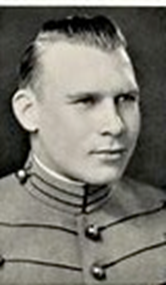 One of the parachutists was Lt. Col. Robert L. Wolverton, 29, from West Virginia. Hours before his battalion (3rd Battalion, 506th Parachute Infantry Regiment of the 101st Airborne division) made its jump, Col. Wolverton addressed the 759 troops under his command and prayed with them.
One of the parachutists was Lt. Col. Robert L. Wolverton, 29, from West Virginia. Hours before his battalion (3rd Battalion, 506th Parachute Infantry Regiment of the 101st Airborne division) made its jump, Col. Wolverton addressed the 759 troops under his command and prayed with them.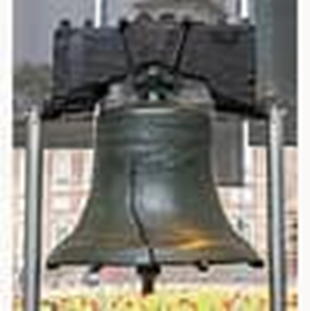 We hold these truths to be self-evident, that all men are created equal, that they are endowed by their Creator with certain unalienable Rights, that among these are Life, Liberty and the pursuit of Happiness. – That to secure these rights, Governments are instituted among Men, deriving their just powers from the consent of the governed…
We hold these truths to be self-evident, that all men are created equal, that they are endowed by their Creator with certain unalienable Rights, that among these are Life, Liberty and the pursuit of Happiness. – That to secure these rights, Governments are instituted among Men, deriving their just powers from the consent of the governed…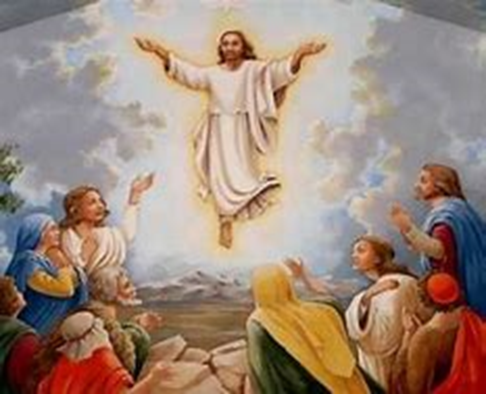 As they were looking on, he was lifted up, and a cloud took him out of their sight. And while they were gazing into heaven as he went, behold, two men stood by them in white robes, and said, “Men of Galilee, why do you stand looking into heaven? This Jesus, who was taken up from you into heaven, will come in the same way as you saw him go into heaven.”
As they were looking on, he was lifted up, and a cloud took him out of their sight. And while they were gazing into heaven as he went, behold, two men stood by them in white robes, and said, “Men of Galilee, why do you stand looking into heaven? This Jesus, who was taken up from you into heaven, will come in the same way as you saw him go into heaven.” 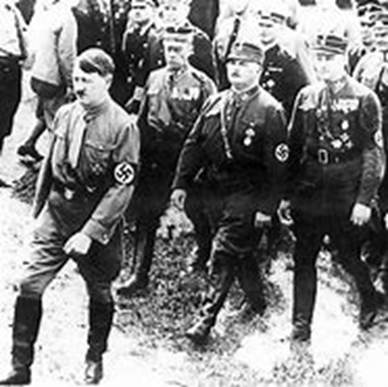 Chancellor/dictator Adolph Hitler, at the urging of Heinrich Himmler and Hermann Göring, ordered executions to consolidate his power. The violence from June 30 through July 2, 1934 was directed against the paramilitary group known as “Brown Shirts,” which had supported Hitler’s rise to power but which was seen as a threat by the German military. Other political enemies of Hitler were also purged by execution, including Gustav Ritter von Kahr, a political leader in Bavaria who had suppressed Hitler’s Munich Beer Hall Putsch in 1923.
Chancellor/dictator Adolph Hitler, at the urging of Heinrich Himmler and Hermann Göring, ordered executions to consolidate his power. The violence from June 30 through July 2, 1934 was directed against the paramilitary group known as “Brown Shirts,” which had supported Hitler’s rise to power but which was seen as a threat by the German military. Other political enemies of Hitler were also purged by execution, including Gustav Ritter von Kahr, a political leader in Bavaria who had suppressed Hitler’s Munich Beer Hall Putsch in 1923. “Our God in Heaven, we begin by asking your very special comfort and encouragement for the families of the four officers killed in Charlotte. Guide the law enforcement departments and their leaders through this very difficult time.
“Our God in Heaven, we begin by asking your very special comfort and encouragement for the families of the four officers killed in Charlotte. Guide the law enforcement departments and their leaders through this very difficult time.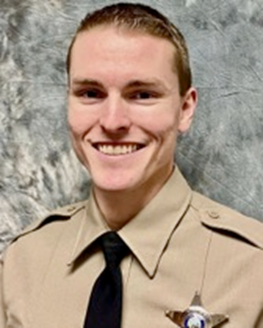

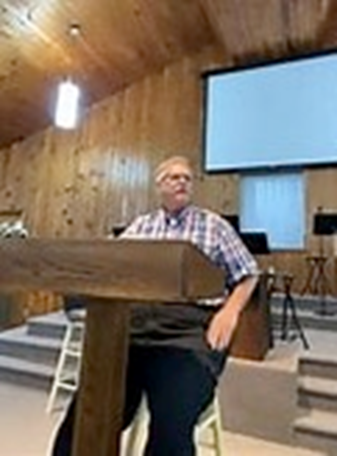 A Soldier
A Soldier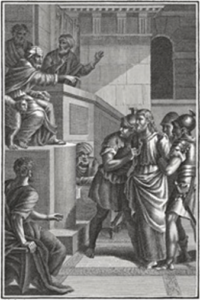 Good Friday?
Good Friday?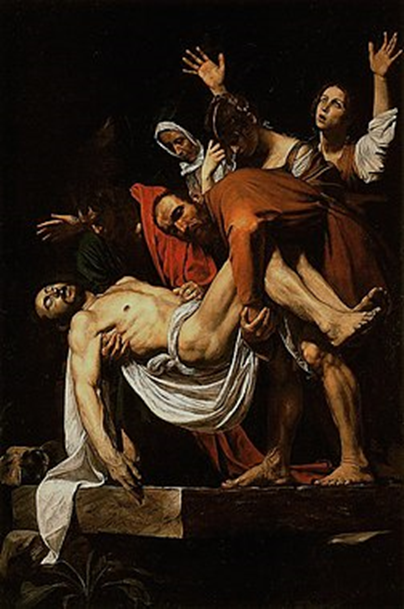 Bearing shame and scoffing rude,
Bearing shame and scoffing rude,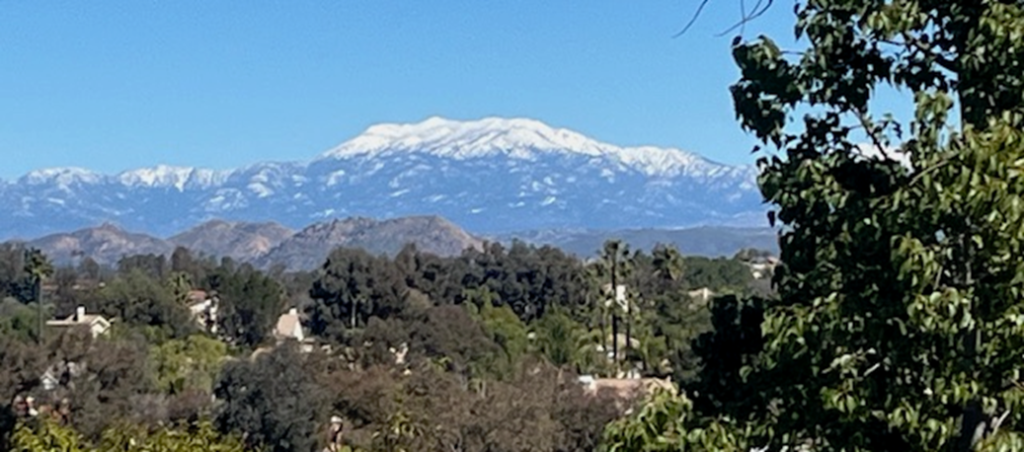 [/vc_column_text][/vc_column][/vc_row][vc_row][vc_column][vc_column_text]
[/vc_column_text][/vc_column][/vc_row][vc_row][vc_column][vc_column_text]